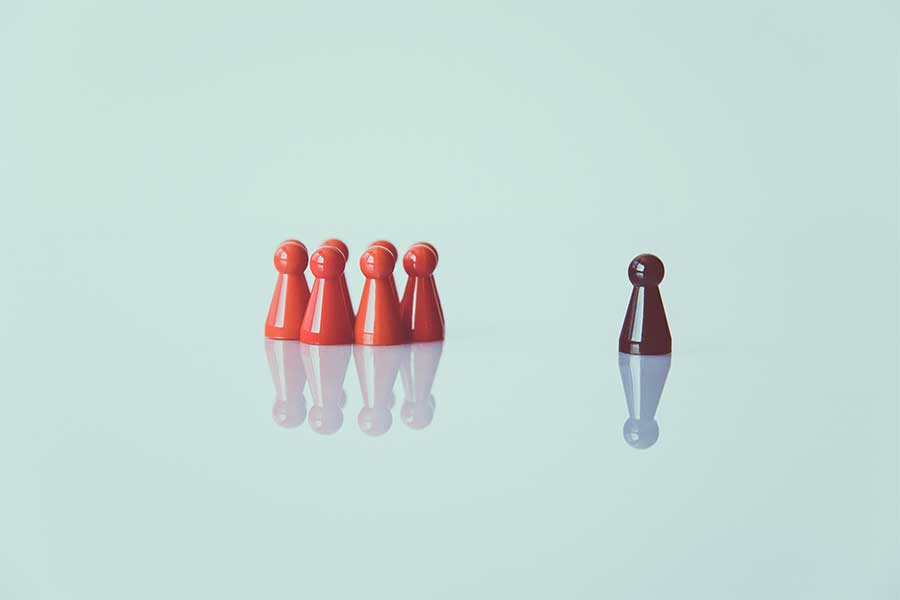With the decline of the European feudal order, the weakening of the Catholic Church, the rise of Protestant Christianity, and the renaissance and scientific revolutions, the political philosophy of liberalism emerged. But what exactly is liberalism? Although it is a dominant and spreading ideology in the Western world, liberalism does not have a singular definition, rather it includes a wide scope of differing and oftentimes conflicting ideas, values, maxims, and traditions that make it difficult to define.
Generally speaking, liberalism in everyday discourse refers to a broad political philosophy that is founded on particular ideas of equality and individual liberty. At its core, from the Islamic worldview, liberalism is seen as a highly individualistic philosophy. Liberalism oftentimes emphasizes egalitarianism, or the principle that all people are equal and deserve equal rights and opportunities. It also advocates for meliorism, or the belief that humans have made the world better and can continuously improve the condition of the world.
When Americans think of liberalism, they oftentimes associate it with certain notions of freedom, like freedom of religion, speech, the press, and a separation of church and state (a form of secularity). It’s also associated with a free market, which emphasizes little to no government interference in economic matters. Additionally, liberalism is generally seen as a reflection of democracy, or the will of the people by the people. Most people perceive liberalism to be completely secular, refraining from governance that is exclusive to one religion’s moral values, while also permitting people to live according to their own beliefs. Many staunch advocates of political liberalism identify as agnostic, atheist, secular humanists, and so forth, although there are religious adherents as well.
The secular revolt against Christianity, particularly Christian political authority, was multi-faceted. The Lutheran reformation added to the challenges to the Christian state. Despite the many changes and foreshadowed revolutions, the Christian circles generally became even more isolated, feudal, homogenous, and aggressive. This resulted in the rapid development of various intellectual movements, publications, and groups, like the Royal Society. As its motto makes clear, skepticism is the default state of mind, particularly when it comes to taking revelation (in this case, Christian) and religious values as epistemological sources. What’s oftentimes referred to as the “Age of Reason” placed human reasoning on the highest pedestal, rejected what it saw as weaknesses in religion, and aimed to provide a greater justification for belief based upon reasoning and rational thought.” While there’s much to say about John Locke (d. 1704), usually considered a key “founder” of classical liberalism, I want to give most attention to the political liberalism of John Rawls (d. 2002), particularly because the latter is more relevant to the reality on the ground today.
For many people, including Muslims in Western countries, it’s easy to point out what people perceive as advantages of political liberalism for minorities. Typically, there’s more freedom of speech than in other lands, and religious practice is not by habit or culture but by conviction. Additionally, theoretically, liberalism permits all of its residents, including Muslims, to be part of its system and to potentially influence society in some manner, thus it is ever-changing based on its prevailing ethos at any particular time, its elected politicians, and partisan power interplays.
Nevertheless, there are great disadvantages cited by many Muslims. Among them is that the notion of freedom entails that all people, even those with the most immoral beliefs (according to the Muslim worldview), will be permitted to practice immorality and even advocate for its acceptance politically and culturally. This results in an inevitable moral deterioration which becomes widespread in society, and leads to desensitization to immorality of various sorts, even within the “religious” Muslim community. Most importantly for this article is the clear disadvantage experienced today to a greater degree than before: intolerance. Let us explore what liberalism – even the Rawlsian liberalism that is prevalent – states about tolerance and intolerance.
What Is Tolerance?
To understand tolerance, one must first define it. It is “a fair, respectful, and permissive attitude or policy toward people whose opinions, beliefs, practices, racial or ethnic origins, etc., differ from one’s own or from those of the majority; freedom from bigotry and from an insistence on conformity; a liberal, undogmatic attitude.” Liberalism sees itself as tolerant and, therefore, “civilized.
Political liberalism is the idea that a superior ideology, one which is “civilized,” exists to rule all people in pluralistic societies like the United States. The superiority is established via the prideful belief that liberalism can “tolerate” all religions in a society without being dominated by any of them or tolerate “certain fundamentalisms without becoming fundamentalist.” Therefore, proponents argue, it is only fair that a diverse society is ruled by a system more extensive than one religion, as though the assumption that “extensive” equates to “better” or “more truthful” as a worldview. Liberalism sees religious individuals generally as intolerant and, paradoxically, while priding itself on its tolerance of the various religions, only does so as long as religion is private and disengaged from the political process and discourse.
Western notions of tolerance are, at the base, hypocritical. If being tolerant involves being free from bigotry of any kind, and of welcoming pluralism (e.g., difference from the majority or the conventional), then it requires self-awareness and self-searching. But those who virtue-signal their own tolerance often end up in the snares of self-declared superiority and ignore the need to look into the mirror. Only then would they be able to truthfully observe a society that has no grounds to claim it is morally superior. What is seen is widespread economic inequality, the lack of basic healthcare for all citizens (in a society that has wealth), pollution of the planet and destruction of the environment, the normalized hookup culture, hyper-sexualization of women, rampant use of pornography, billions of dollars spent on cosmetic surgery, the great number of abortions that could have been prevented, the pursuit of a lifestyle of hedonism, the epidemic of loneliness and nihilism, endless pursuits of corporate profits, the buying of politicians, the two-party system with its false dilemma, racism and discrimination, and a blind allegiance to a military complex that has created more terror, violence, and pain in the world than most other nations in the past two centuries.
This liberal democracy, they believe, is defined by ever-changing relativist notions of morality; yet, with this, chaos ultimately reigns. That is what we see in the U.S. today. Where do advocates of political liberalism assume their morals will emerge from? Naturalism does not provide a moral compass, and the recent track record of two centuries since the so-called Enlightenment has proven to be a failure for liberalism in its diverse forms. It is true that liberalism has its ideals and those get (and have gotten) corrupted by individuals, policies, and political maneuvering among contesting parties. In the same way, there is, no doubt, a principle on preserving life, religion, intellect, and honor within Islam, and the religion of God encourages a pluralistic society that accommodates different belief systems. Yet, propped up dictators in Muslim majority countries clearly reject actual revelation and follow instead their personal agendas and desire for power.
It is evident that political liberalism in its current form has evolved far beyond what its original thinkers imagined it to be, but that is unsurprising to the Muslim who sees a straying from God and revelation as the first step to corruption in the world. And with Rawlsian liberalism, that’s precisely what we have today. Despite its claims of complete neutrality, liberalism has become an ambitious contender in global affairs, exporting its notions of “freedom and liberty” with its underlying, barely concealed, desire for dominance that is not just political, but religious in the sense of promoting, even insisting on, a particular set of beliefs and practices. Far-left liberalism today has become the religion of Western societies and has banished genuine religion to one’s home with the banner of “live and let live” as a disguise.
As Rupert Read writes, “Liberal claims to neutrality, with regard to ultimate values, beliefs and practices, are not neutral at all, but rather function to exclude religious reason from public discourse in a manner that reveals a hidden logic of totalitarianism or fundamentalism beneath the liberal veil of ‘tolerance.’”
The Western Muslim today can take several measures to preserve society and safeguard oneself: 1) education from authentic sources about the Islamic worldview; 2) political strategizing and cooperative action with think tanks and other organizations; 3) focusing on the essential roles of individuals, families, communities, and institutions to bring genuine religion into the discourse and propagate its moral stances; 4) avoiding the consumption of liberalizing and secularizing content (e.g., certain types of movies and entertainment); and 5) being proud Muslims who preserve their own identities, being tolerant in the sense of co-existing in a pluralistic society, but advocating for moral laws that decrease or eliminate as much evil and injustice as possible. If Muslims believe in maxims of revelation as a solution for governance and individual lifestyles, then they have a moral obligation to benefit the world through that solution.






